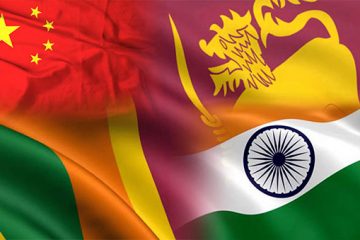
Caught in Indo-Chinese Crosswinds? Charting a Pragmatic Foreign Policy for Sri Lanka
Competition is a natural by-product of major powers navigating an anarchic world. Small states face a dilemma, when caught in the middle between two rivaling major powers. Sri Lanka in particular, has captured international attention as a key battleground between Beijing and New Delhi in their tussle for influence in South Asia. Whilst some scholars argue that the island is a personification of China’s ‘debt trap diplomacy,’ others contend that China’s influence should not be exaggerated, as Chinese lending amounts to less than 15% of Sri Lanka’s total external debt. Concerns over Sri Lanka’s sovereignty have been rife following the US $ 1.12 billion debt-to-equity swap of the Hambantota Port Agreement and the proposed lease of the Mattala International Airport …

Japan’s aircraft carriers and the balance of naval capabilities in Asia
After much speculation about the future of the Japanese Navy, it was announced in early December that the Izumo-class helicopter carriers will be converted to aircraft carriers. This will require a substantial reconstruction of the two ships as well as the purchase of F‑35B fighter jets to comprise the carriers’ airwings. It is likely that 100 additional F-35 aircraft will be ordered to further bulk up Japanese aerial capabilities. This change is important for three reasons, firstly, Japan has not operated aircraft carriers since World War Two, secondly, they are being commissioned to contest increasing Chinese control of the northwest Pacific, and thirdly, because aircraft carriers are also under construction in the United States, Britain, China and India. We appear …
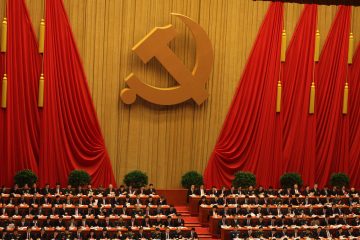
Homeland Calling: The Chinese Diaspora and Beijing’s Worrying Embrace of Ethnic Nationalism
Recent years have seen a global resurgence of ethnic nationalism. Yet, political identities based on ethnicity are nothing new. In fact, ethno-nationalist desires reshaped Europe’s borders in the early 20th century with devastating consequences. Despite more than seven decades of relative peace, largely kept in place by the multilateral organizations and deepening global integration, nationalism appears to be returning to the forefront of politics once more. In Europe, politicians and political parties are tapping on anti-immigrant nationalist sentiment. For instance, Italy’s Matteo Salvini has openly advocated solutions which involve marginalizing ethnically-defined “others”. Rogers Brubaker, professor of sociology at UCLA, has coined the term “civilizationism” to describe the rhetoric used by multiple European political parties which claims that the ethno-cultural homogeneity …
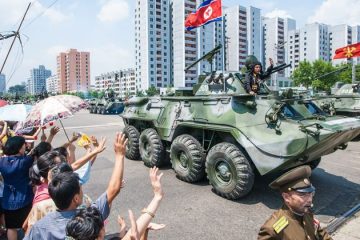
Is North Korea Really that Crazy?
Over the last months, the escalating tensions between the United States and North Korea over the latter’s nuclear programme have dominated news headlines. US President Donald Trump has called North Korean leader Kim Jong-Un “rocket man” in front of the United Nations, labelled him crazy and insane, and stated he was willing to halt Kim’s pursuit of nuclear weapons by all means, while North Korea labelled Trump a “dotard.” Not everyone might like Trump’s colourful rhetoric, but his remarks strike a chord with many. The Democratic People’s Republic of Korea (DPRK), or North Korea, threatens to turn Seoul into “a sea of fire” and to destroy the United States. Repeated rockets launched towards Japan seem like a preamble to a …
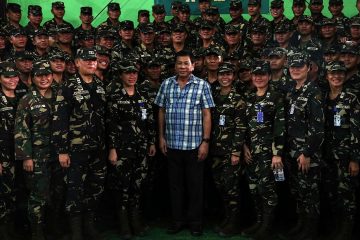
Southeast Asia in Dark Times: Philippines’ Martial Law and Indonesia’s Mob Rule
The future of democracy and the rule of law in Southeast Asia is in peril. While fundamentally different in many ways, current political developments in the Philippines and Indonesia showcase an erosion of fundamental rights, respect of differences and due process. Confronted by terrorism, drugs and illiberal groups, how willing and able are the governments of the Philippines and Indonesia to balance national security prerogatives and popular demands with respect for civil liberties? A Spiral of Murder in the Philippines Under the leadership of President Rodrigo Duterte, the Filipino government embraced “martial law” to wage war on drugs, and now against militants aligned with the Islamic State. The government’s actions have reportedly led to widespread human rights violations and extra-judicial …

From Area to Area: The Changing Face of Area Studies
North Korean Studies: the focus on the hermit kingdom, its politics, economics, and society; the kingdom that poses a real-life threat to South Korea, and the world order as we know it today; a unique Marxist-Leninist state in the twenty-first century. Why focus on this particular area? More broadly, why devote time, funding, and research to the study of specific “areas” of the world? Surely an increasingly interconnected globe has rendered redundant the concept of a fixed “area”? The field of political geography—including geopolitics—has witnessed lengthy definitional and procedural debates around the field of area studies. North Korean studies—an area study in itself—offers a plethora of avenues for insight into area studies more widely in debates on how “best” to …
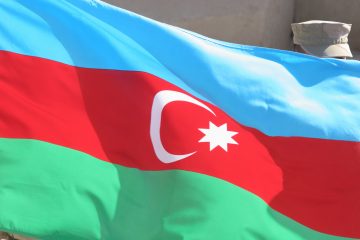
Why The Russia-Azerbaijan Alliance Is Weaker Than It Looks
On August 8, 2016, Russian President Vladimir Putin and Azerbaijani President Ilham Aliyev met in Baku. Shortly after their meeting, Putin announced Russia’s intention to forge a strategic partnership with Azerbaijan. Putin also expressed interest in expanding Russia-Azerbaijan trade links and strengthening Moscow-Baku military cooperation in the Caspian Sea region. As Russia has increased its arms exports to Azerbaijan in recent years, many analysts believe that the Putin-Aliyev summit is a starting point for a consolidated Moscow-Baku alliance. This assessment overestimates the strength of the Russia-Azerbaijan partnership. There is compelling evidence that the much-touted “alliance” between Russia and Azerbaijan is merely a temporary marriage of convenience aimed at maximizing both countries’ geopolitical influence. Even though Azerbaijan has recently upgraded its economic …
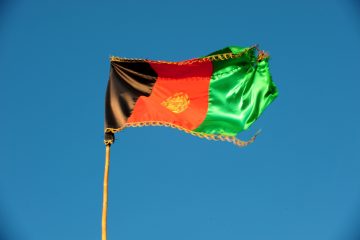
New Challenges – Is the Taliban in Transition?
On 21st May, an American airstrike killed Taliban leader Mullah Akhtar Mansour in the Pakistani province of Baluchistan. This operation, which involved multiple drones, comes as a relief to many, as Mansour had been actively planning and carrying out attacks across Afghanistan. According to the US Secretary of State John Kerry, Mansour ‘posed a continuing imminent threat to US personnel in Afghanistan, Afghan civilians, Afghan security forces, and members of the US and the NATO coalition.’ The killing of the Taliban leader, however, is likely to lead to unwelcome consequences, and will hamper peace talks between the insurgents and the government. The issue of peace talks has always been unpopular among the Taliban’s most senior leadership. In the wake of Mansour’s …









